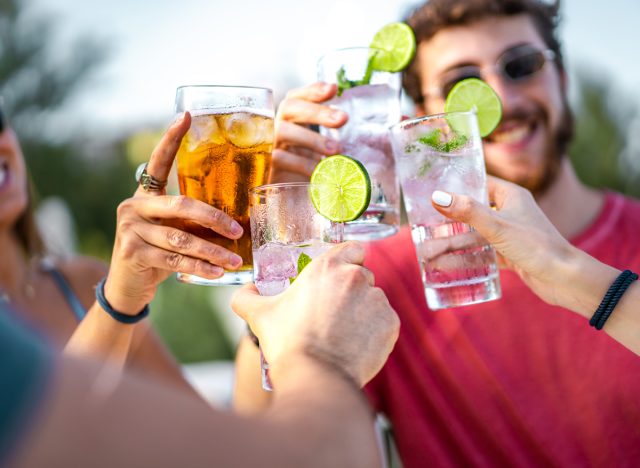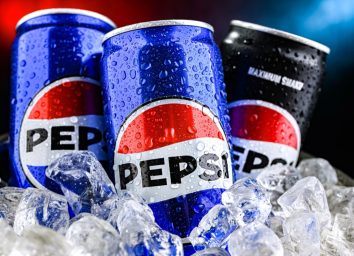Surprising Ways Alcohol Speeds up the Aging Process

Drinking alcohol is a topic that is highly debated in the health world. Some believe that drinking in moderation is perfectly fine, while others believe it should be avoided when possible. But much of this debate is more so related to the culture surrounding drinking here in the U.S.
While many of the oldest and healthiest people across the globe drink wine on a regular basis, they're drinking smaller amounts and eating a healthy, balanced diet. In the U.S., however, it's common to participate in more binge drinking or heavier consumption of alcohol, which is where many of the problems lie.
We talked with a few dietitians about the different ways in which alcohol can impact a person's aging process, but most of these effects are connected to heavier drinking and not just the occasional glass.
Read on, and for more aging tips check out The Most Crucial Eating Habit for Heart Disease.
Alcohol can decrease immune function.

Research has shown that heavy drinking can negatively impact your immune system's functioning and defensive systems, something that can pose many issues as you age.
"Alcohol impacts the efficacy of normal organ functioning, including the immune function of the blood cells," says Morgyn Clair, MS, RDN, a registered dietitian and author at Fit Healthy Momma. "When you drink alcohol, your body becomes concerned with neutralizing the alcohol and it isn't able to function optimally."
Alcohol's dehydrating effects can age your skin.

One way that alcohol can affect you at any age is by dehydrating you; as you get older, this may result in faster-aging skin.
"Dehydration can take a toll on a person's skin appearance, and it can lead to dry skin," says Lauren Manaker, MS, RDN, author of The First Time Mom's Pregnancy Cookbook and Fueling Male Fertility. "And since our skin can become drier as we age, the combo can be a perfect equation for having skin that isn't looking as radiant as you may wish."
RELATED: How to Reverse Aging Skin, Say Dermatologists
Alcohol inhibits the absorption of certain nutrients linked to disease prevention.

Another way that alcohol can affect your aging process is by impacting how certain nutrients are absorbed.
"Alcohol consumption can inhibit your body's absorption of nutrients like zinc and thiamine," says Manaker, "and being deficient in certain nutrients as we age can take a toll on our health. For example, reduced thiamine is linked to experiencing Alzheimer's disease-like abnormalities."
According to Harvard Health, heavy alcohol consumption can also impact the body's absorption of folate, and folate deficiency has been found to cause genetic changes that increase your risk of certain cancers.
Heavy drinking can compromise bone health.

Studies have found that heavy drinking on a consistent basis has been associated with weaker bones and a higher risk of osteoporosis. The CDC says that "heavy drinking" is considered 8 or more drinks per week for women and 15 or more drinks for men.
"Since many of us will experience bone breakdown at a faster rate than bone formation when we get older, having weaker bones thanks to drinking habits can exacerbate one of the downsides of the aging process," says Manaker.







